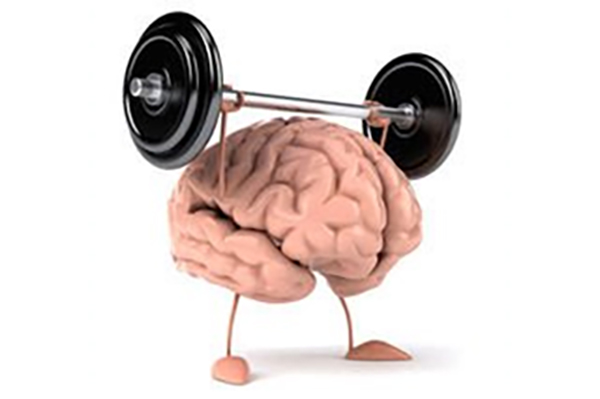WHAT ARE THE BENEFITS OF BEING MENTALLY TOUGH IN MARTIAL ARTS, ATHLETICS AND IN EVERY DAY LIFE?
We often discuss “focus” and its importance during Taekwondo and Krav Maga classes. It is at the root of improving attitude, physical skills and character performance; the ingredients for Mental Toughness.
Mental toughness is a measure of a person’s ability to recover quickly from difficulties and challenges. It is framed by an individual’s strength of confidence and self-esteem. Meeting the challenges presented in learning, life situations, and athletic endeavors evidence mental toughness. These are the critical environments that measure the level of determination and perseverance that are necessary to achieve success.

The Ingredients of Mental Toughness
Psychology researchers Peter Clough and Doug Strycharczyk define mental toughness in their book entitled Developing Mental Toughness, as “The quality which determines in large part how people deal effectively with challenges, stressors, and pressure…irrespective of prevailing circumstances.”1 Clough, et. al., describe it as being similar to a personality trait consisting of four critical components.
- Challenges: Viewed as opportunities instead of obstacles.
- Control: Identifying that you are the driving force that is in control of your endeavors.
- Commitment: Persevering to completion of tasks and challenges.
- Confidence: Self esteem and the belief in your ability to succeed.
Like all things, some people come by mental toughness by their very nature. However, in a study published in 2017, researchers suggest that it is also a skill that can be learned and strengthened.2
Taekwondo and Krav Maga training certainly point to the ability to acquire these skills. We phrase it as development of “Attitude, Behavior, and Ability”. We employ proven methods of training for instructors and leadership students to nurture students to develop mental toughness.
Mentally tough people know they can succeed.
If you are trying to lose weight, drop a bad habit, run a marathon, excel in your profession, or do great in school, believing in yourself is essential.3 It is also critically essential to focus your energy on staying positive and self-encouraging.
Focus on personal satisfaction as a primary goal.
“Personal Best Performance” requires focus and results from self to do better, push harder, be stronger, and see just how far they can go.2 Mentally tough people focus on participating and overcoming challenges as they proceed toward the end goal. The rewards that happen at the end of the goal are the icing on the cake from having hustled to do one’s best.
Setbacks are viewed as challenges and motivation to persevere.
Feeling letdown by a failure is natural. However, understanding that you have not failed until you quit is a critical part of mental toughness. You must face the difficulty, manage the stress, and push toward excellence. The focus must be on building the resolve to work through the challenge and achieve your goals.
Self-Direction and Self-Control are necessary elements for success.
Mentally tough people don’t let life happen to them—they create the life they want. They are inspired by their peers, mentors, coaches, and competition. By setting goals and pursuing them, mentally tough people are in control of their lives and are directing the outcomes toward their own satisfaction. At the same time the are pushing the envelope that contains the framework gained by engagement with those that can help to drive them toward their goals.
Elite gymnast who were surveyed cited having goals as one of the strongest influences on their mental toughness: “I realized how to set goals and how trying to reach them would help me get to the highest level,” one gymnast told researchers.4
For martial artists and other athletes, this is all about sticking to training regimens; putting in the practice at class, making daily gains through repetitions, and facing competition to test abilities under different challenging and unfamiliar circumstances. In everyday life, it is about developing daily habits that lead to success and help to realize goals and ambitions.
“Success is not final, failure is not fatal: it is the courage to continue that counts.”
– Sir Winston Churchill
References:
- Clough P, Strycharczyk D. Developing Mental Toughness, Improving Performance, Wellbeing and Positive Behaviour in Others. Kogan Page Limited; 2012.
- Lin Y, Mutz J, Clough PJ, Papageorgiou KA. Mental Toughness and Individual Differences in Learning, Educational and Work Performance, Psychological Well-being, and Personality: A Systematic Review. Front Psychol. 2017;8:1345. Published 2017 Aug 11. doi:10.3389/fpsyg.2017.01345
- Hyseni Duraku Z, Hoxha L. Self-esteem, study skills, self-concept, social support, psychological distress, and coping mechanism effects on test anxiety and academic performance. Health Psychol Open. 2018;5(2):2055102918799963. Published 2018 Sep 12. doi:10.1177/2055102918799963
- Thelwell RC, Such BA, Weston NJV, Such JD, Greenlees IA. Developing mental toughness: Perceptions of elite female gymnasts.International Journal of Sport and Exercise Psychology. 2010;8(2):170-188. doi:10.1080/1612197x.2010.9671941.
- NOTE: This blog entry was inspired by “How to Cultivate Mental Toughness: What We Can Learn From the World’s Top Athletes”; published in the website verywellfit.com, by Kendra Cherry; medically reviewed by Steven Gans, MD; updated on September 21, 2019



